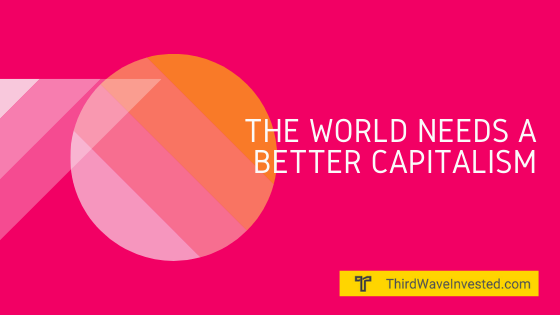
Public companies are companies that sell shares to the public in order to raise money and finance growth. Executives who run these companies often focus on enhancing shareholder value, which describes the returns that shareholders derive from their investments. The maximisation of shareholder value is achieved through dividend increases and an increase in the share price over time.
Companies that focus on maximizing shareholder value are often criticized for several negative consequences that they might have. Some of these may occur due to the fact that they can lead to bad and unsustainable business practices.
During the global recession that began in the late 2000s, many US financial institutions issued mortgages to borrowers with bad credit, hoping to make as much profit as possible. Such practices may have yielded short-term gains, but the resulting mass defaults and foreclosures eventually forced banks to absorb huge losses.
A company that focuses on maximizing shareholder value could lose focus on what the customer wants, rather than doing things that are not optimal for the consumer. For example, a company could decide to reduce production costs by using inferior parts in its products. In some cases, companies have engaged in unethical practices, such as falsifying financial information to increase shareholder value.
This is bad for the consumer and could drive down profits and share prices, but it could also damage the reputation of the company and its products and do the opposite of its intended effect by reducing the value of a company’s shares. Another negative consequence of maximizing shareholder value is that it can harm employees.
If domestic labor is not cheap enough or productive enough, companies can outsource labor to those who work for lower wages. Their costs are lower, and they can make more profit while maintaining overall revenues, which can benefit them from cuts in benefits and wages, but if domestic workers cost too much, or if their costs were lower, the company could also outsource labor to those who work for low wages.
Government regulation and taxes can reduce shareholder value, and companies can donate money to help specific politicians and political parties. Businesses can be far more influential than individual voters, because they often have vast sums at their disposal. They can get governments to pass laws that benefit business, and sometimes politicians are criticized for their actions, but they can also act more influential as individuals than as voters, since they often had vast amounts of time, money, or even political influence in their hands.
The goal of maximizing profit is at best a short-term goal in financial management. But if a company profits only at the expense of its employees, customers or other stakeholders, like suppliers and its community, why instead of just operating a hedge fund, would a company goes into business at all?